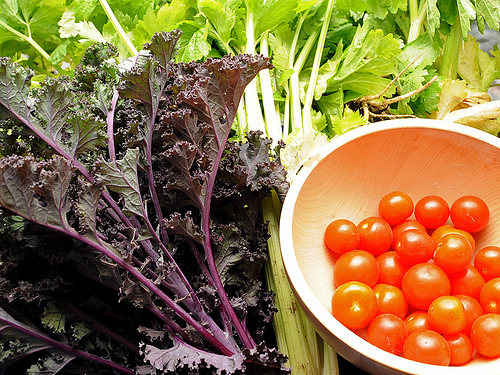
It’s not true that you reap what you sow. You reap what you sow and pay attention to.
Take my garden.
I’m an impulsive sort, so my evolution as a gardener began with somewhat slapdash, if enthusiastic, planting. I’d plant as soon as I got around to it in the Spring, usually a few weeks before or after the optimal time. And I pretty much trusted to time and nature for the rest.
My results were spotty, and that was okay with me. After all, I wasn’t relying on my garden for survival.
Nonetheless, something in me wanted to create a more fruitful garden. So I became a better educated and more attentive gardener. The more attention I paid to the garden, the better it did, even when the weather was indifferent to my plans.
And it’s the same with self employment.
Working for yourself is like growing vegetables
When you work for yourself, your results pretty much match the amount of informed attention you give to your business. While you can’t control the economy, you can control how you position yourself in that economy. While you can’t control people’s choices, you can control how well you appeal to their concerns.
And you can absolutely control how well educated you are about succeeding and how attentive you are to what you are creating.
Education plus attention = results
I see a lot of people spending a lot of money on books, programs, and coaching to build their businesses and not getting very impressive results. I think there are two reasons for this.
First of all, educating yourself takes more than collecting information. You have to convert that information to knowledge by learning HOW to apply it. It’s not enough to buy seeds, you need to know how to plant them.
Secondly, knowledge needs to be acted on over time. You need to nurture seedlings until they are mature if you want a harvest. It takes regular attention and action for knowledge to produce results.
And too often I see people invest in information (seeds) without getting the knowledge and systematic guidance it takes to turn those seeds into a harvest.
It makes me sad.
What kind of garden will you have?
The results you get from self employment are directly connected to the actions you take over time. And these actions are learnable, replicable, and within your grasp.
You don’t need to sacrifice your values or get a personality transplant to become a better gardener. You do need to choose what kind of garden you’re going to grow, and then do what it takes to grow it.
You may have a hobby business, where you’re not relying on your income to meet your family’s needs. That’s your right. But even so, I propose that there is something beautiful about a well-tended business, just as there is something beautiful about a well-tended garden. Something artful and generous.
So, if you haven’t yet made a conscious commitment to thriving, I invite you to do it now. I think you’ll be amazed within a very short time at what happens when you apply yourself consistently to growing your business. And I believe the world will be a better place for it.
A few gardening tips
This has been one of the best years ever in my business, and it’s because I have become a more systematic gardener. Surprisingly, being more systematic has made me more creative and energetic. Who knew?
Here are my best business gardening tips.
- Decide what you want to harvest. If it’s not about the money, get very clear what it is about. When you know what kind of harvest you want, you’re going to be a lot more intentional about creating it.
- Get real about what you need to reap that harvest. This is where money comes in. You’re going to need a certain amount to have the security you need to do your best work. Figure out how much that is and decide to go for it.
- Decide what to plant. Are you going to offer hourly services? A package? Products? Classes? Play with various possibilities, comparing them to what you want to create and what you need to earn. Choose the ones you think will work best.
- Tend to your crops. This means figuring out what has to happen, when, and how often so that the choices you’ve made are successful. You don’t have to get this perfect! Make your best assessment of what needs to happen, do it, then learn from the results you get.
- Harvest what you’ve grown. As you succeed, take the time to celebrate what you’ve accomplished. Acknowledge your progress. Notice what worked and enjoy what you’ve created.
You can be a more successful gardener. The question is, are you willing to be?
The path to garden mastery
If you’ve been working for yourself for a while, you’ve learned a few things about tending your garden. But perhaps there’s a gap between where you are now and what you truly want to create. The Self Employment Telesummit is about closing that gap.
It’s a virtual conference for people who want to get over the hump from getting by to shining profitability. It’s designed to turn the information you’ve been gathering into the knowledge and wisdom you need to take focused, productive action and get measurable results.
If you’re wanting something more out of self-employment, I invite you to check it out at www.selfemploymenttelesummit.com. If what you read resonates, I hope you will sign up. The world will be a better place for you having a more beautiful garden.
Photo by Downing Street via Flickr
Under a Creative Commons License

